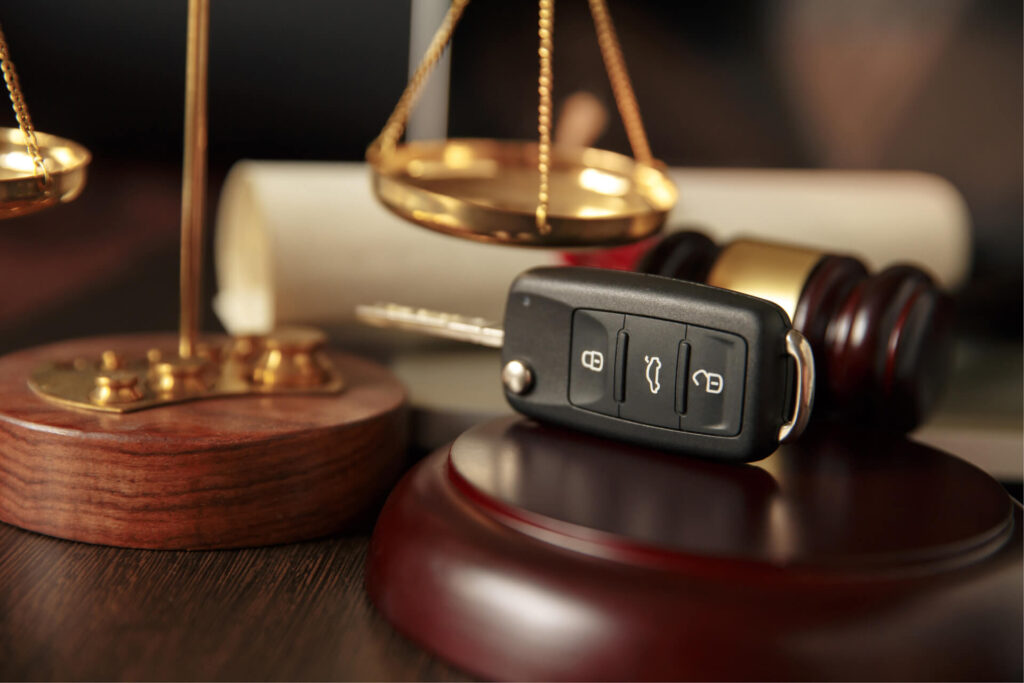A DUI conviction can have far-reaching consequences, extending beyond legal penalties to impact your employment opportunities. Employers often conduct background checks as part of their hiring process, and a DUI on your record can be a significant red flag. Understanding how long a DUI stays on your record and the implications it has for your employment prospects is crucial for anyone facing such charges.
If you’ve been charged with a DUI or know that you’re under investigation for a DUI violation, seek legal representation from a reputable Virginia DUI lawyer immediately. Our team has years of criminal law knowledge and experience serving the local areas of Manassas, Fairfax, and all of Prince William County.
With over 25 years of experience, we’ve handled more than 10,000 cases and served over 5,000 happy clients—making us a formidable advocate for those facing DUI charges. We’re dedicated to providing aggressive and compassionate legal representation to ensure that your rights are protected and that you receive the best possible outcome for your case.
Understanding the ramifications of a DUI charge is crucial for anyone facing this situation. The penalties for a DUI in Virginia can be severe, and the impact on your record can affect various aspects of your life, including employment opportunities.

How Long Does a DUI Stay on Your Record?
The duration a DUI stays on your record can vary depending on state laws and the nature of the offense. Generally, a DUI can remain on your criminal record for several years, and in some cases, it may be permanent. Here’s a detailed breakdown:
General US Standards
In many states, a DUI can stay on your record for 5 to 10 years. This duration can influence various aspects of your life, including employment opportunities, insurance rates, and even housing applications. For instance, states like California and New York typically keep a DUI on your driving record for 10 years. However, the criminal record aspect can vary, with some states allowing for expungement or sealing of records after a certain period, provided certain conditions are met.
Virginia Laws
In Virginia, a DUI conviction stays on your criminal record permanently. This means it can be seen by potential employers, law enforcement, and other entities conducting background checks. Virginia is known for its stringent DUI laws, and a conviction can have long-lasting repercussions. Unlike some states that allow for the expungement of DUI records under specific circumstances, Virginia does not permit the expungement of DUI convictions. This permanent mark can affect your job prospects, especially in industries that require a clean driving record or a high level of trust and responsibility.
Record Expungement
Expungement is the process of legally removing a conviction from your record. This can be a crucial step for individuals looking to move past their DUI conviction and improve their employment prospects. Here’s what you need to know:
What is Expungement?
Expungement allows you to seal or erase a criminal record, making it inaccessible to the public and most employers. Once a record is deleted, it is as if the conviction never occurred. This can significantly improve your chances of securing employment, housing, and other opportunities that require a clean background check.
Steps Involved
The process of expungement typically involves several steps:
Filing a Petition: The first step is to file a petition for expungement with the court that handled your case. This petition must include detailed information about your conviction and the reasons you believe expungement is warranted.
Notification: After filing the petition, you must notify the district attorney’s office. They have the right to object to your expungement request.
Hearing: A court hearing will be scheduled for you to present your case. During this hearing, you will need to demonstrate that expungement is in the interest of justice. This may involve showing evidence of rehabilitation, lack of subsequent criminal activity, and the negative impact the conviction has had on your life.
Court Decision: The judge will make a decision based on the evidence presented. If the judge grants the expungement, your record will be sealed or erased.
State-Specific Requirements
Each state has its requirements and processes for expungement. In Virginia, expungement is generally not available for DUI convictions. However, there may be other legal avenues to explore, such as:
Pardons: In some cases, you may be able to seek a pardon from the governor. A pardon does not erase the conviction but can restore certain rights and may improve your standing with potential employers.
Appeals: If there were legal errors in your case, you could appeal the conviction. Successful appeals can result in the conviction being overturned.
Alternative Sentencing Programs: Participation in particular programs, such as drug court or rehabilitation programs, may offer opportunities for reduced penalties or alternative sentencing, which can mitigate the long-term impact of a DUI conviction.
Navigating the expungement process can be complex, and it is often beneficial to seek the assistance of an experienced attorney. The Law Offices of Michael A. Pignone can provide expert guidance and support to help you understand your options and pursue the best possible outcome for your situation.
DUIs and Job Applications
Employers use various types of background checks, and a DUI can appear differently depending on the kind of check conducted. Understanding the nuances of each employment background check can help you better prepare for potential employment hurdles.
Criminal Background Checks
Criminal background checks are one of the most common types of checks employers use. These checks will show any criminal convictions, including DUIs. They are typically used for positions that require a high level of trust and responsibility, such as jobs in finance, healthcare, and education. A DUI on a criminal background check can raise red flags for employers, potentially affecting your chances of securing the job. It’s essential to be upfront about your DUI conviction if asked, as honesty can sometimes mitigate the negative impact.
Driving Record Checks
For positions that involve driving, employers may check your driving record. This type of background check will show any DUI convictions, along with other driving-related offenses such as speeding tickets or accidents. Employers in the transportation industry, delivery services, and any job requiring the operation of a company vehicle will likely conduct this type of check. A DUI on your driving record can be particularly damaging in these fields, as it directly relates to your ability to perform the job safely and responsibly.

Federal Background Checks
Federal background checks are more comprehensive and may include criminal, financial, and other records. These checks are often required for positions in government, law enforcement, and other sensitive roles. A federal background check will not only reveal DUI convictions but may also uncover other issues such as unpaid taxes, bankruptcy, or even social media activity. The thorough nature of federal background checks means that a DUI conviction can have far-reaching implications, potentially affecting your eligibility for a wide range of positions.
Employment Verification Checks
While not directly related to criminal history, employment verification checks can also play a role in how a DUI affects your job prospects. These checks verify your employment history, including positions held, dates of employment, and reasons for leaving previous jobs. If you were terminated from a prior job due to a DUI, this information could come to light during an employment verification check, further complicating your job search.
Credit Background Checks
Some employers, particularly those in the financial sector, may conduct credit background checks. While a DUI conviction itself won’t appear on a credit report, the economic repercussions of a DUI—such as fines, increased insurance premiums, and potential job loss—can negatively impact your credit score. A poor credit score can be a red flag for employers, indicating financial instability or irresponsibility.
Social Media Background Checks
In today’s digital age, many employers also conduct social media background checks. While a DUI conviction may not be directly visible on your social media profiles, posts or photos related to the incident could be. Employers may view this as a reflection of your character and decision-making abilities, which can influence their hiring decisions.
Understanding the different types of background checks and how a DUI can appear on each can help you better navigate the job market. Being prepared to address your DUI conviction honestly and proactively can improve your chances of securing employment despite your past mistakes.
If You’re Facing a DUI Charge, Contact The Law Offices of Michael A. Pignone Today
Facing a DUI charge can be overwhelming, but you don’t have to navigate it alone. The Law Offices of Michael A. Pignone offer expert legal support to help you understand your rights and options. Our experienced DUI attorneys can provide guidance on legal defenses, potential expungement, and strategies to minimize the impact of a DUI on your employment prospects. Contact us today to discuss your case and take the first step toward protecting your future. You can reach us at 703-775-4302 or fill out our secure intake form.

